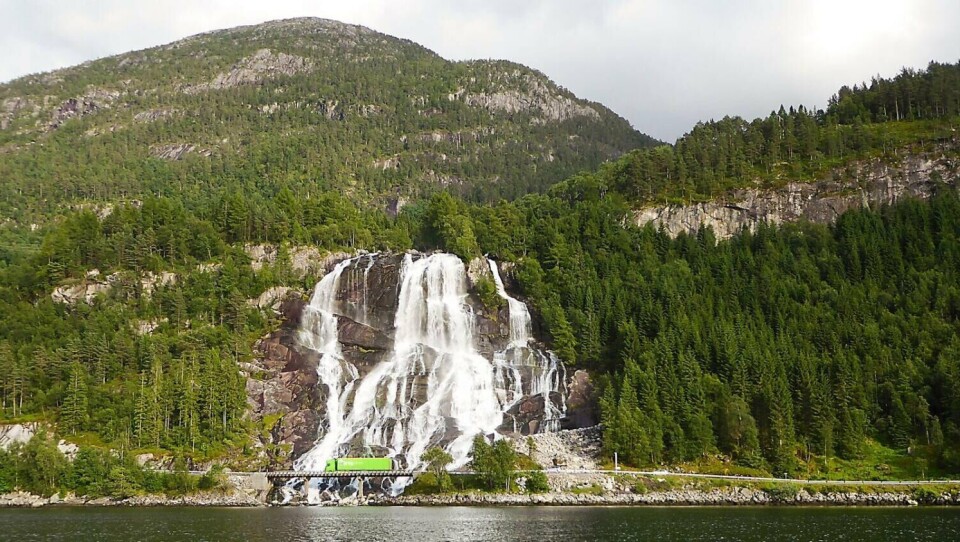
Semi-closed fish farm wins discharge permit
Norwegian salmonid producer Eide Fjordbruk has won a discharge permit for a proposed floating semi-closed containment fish farm in which fish faeces and uneaten feed would be collected for disposal, reports news site Grenda.
The proposed farm in Kvinnherad municipality in Vestland is similar one planned by Loch Long Salmon in Scotland. Both operators plan to use 30,000m³-volume enclosures with a flexible membrane made of an industrial-strength material and pumps that deliver water into the enclosures from a depth below the “lice layer”, the top 10 metres of the water column inhabited by sea lice.
However, the plans differ when it comes to disposal of organic waste. Loch Long Salmon plans to pump waste ashore for treatment, whereas Eide Fjordbruk intends to either pipe it to a deeper part of the fjord or another suitable location.
Although floating semi-closed containment has been developed and used in Norway for some years – largely for on-growing smolts – waste has been allowed to fall out of the enclosures to the seabed.
Six enclosures
Authorities in Norway are encouraging a move towards semi-closed facilities and waste collection by allowing the technology in areas where new open net pens would no longer get permission. Although Eide Fjordbruk now has a discharge permit from the state administrator, it still requires a permit from Vestland County Municipality.
Eide Fjordbruk envisages an increase in production with the release of two cages every four months. For the first two years, the plan is to use six cages.
The site has previously been used for fish farming but has been out of use since 2007.























































